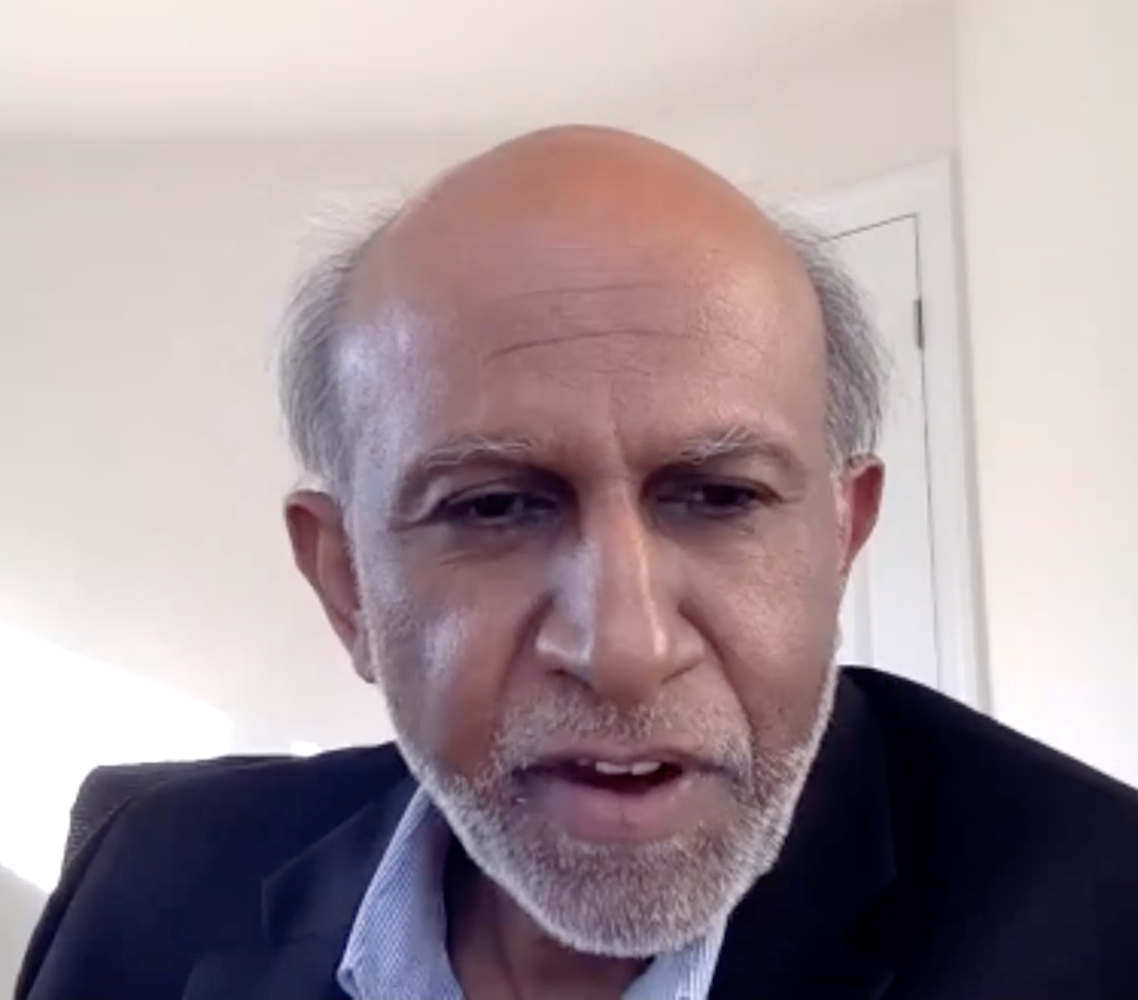
Many immunocompromised patients responding poorly to COVID vaccination
Avindra Nath, a neuroimmunologist and clinical director of the US National Institute of Neurological Disorders and Stroke, answering questions during his New Horizons in Science presentation at ScienceWriters2021. Dr. Nath spoke about immunocompromised patients and COVID-19 vaccines in an interview following the session.
Expert says more, stronger vaccines needed for transplant patients and others.
More and stronger vaccines are needed to give immunocompromised patients the ability to fight COVID-19 infections more effectively, says Avindra Nath, clinical director of the US National Institute of Neurological Disorders and Stroke.
Dr. Nath spoke on the phenomenon called “Long COVID” as part of the New Horizons in Science briefings presented by the Council for the Advancement of Science. In an interview following his Sept. 30 presentation, he talked about a separate challenge: people who fail to develop antibodies after being administered a COVID-19 vaccine.
The New Horizons briefings are part of an annual conference jointly organized in the United States by the National Association of Science Writers and CASW. The conference was held virtually this year.
Dr. Nath, a neuroimmunologist who is both a practicing physician and scientist, says that the number of people who fail to develop immunity antibodies to fight the SARS-CoV-2 virus is rising globally.
“COVID-19 has been an international health concern for some time now. Each time there is a breakthrough in tackling the pandemic, something strange always comes up,” he said. “There is the increasing urge to do more extensive research into new coronavirus vaccines that will protect the entire global population or improve on the current existing ones. Unfortunately, we have a long way to go.”
During his conference presentation, Dr. Nath said there is “a big percentage of the global population” whose immune systems do not produce antibodies even after receiving the full complement of vaccine doses.
In the interview, he added: “The age of the people who fail to produce antibodies during vaccinations is not really a factor. What is a major factor is that they are immunocompromised. People who fail to develop antibodies have immune deficiencies… In many cases, they will likely not produce antibodies because of their condition, such as cancer.” Immunocompromised people also include those who have an organ transplant, an autoimmune disorder, blood cancer, a solid tumor cancer, or HIV infection.
“But depending on the situation despite being immunocompromised, one can be able to produce antibodies. For instance, there are patients who produce antibodies one year after a kidney transplant,” said Dr. Nath.
He says that patients with solid organ transplants, especially lung transplant patients, usually have a poor response to vaccination.
Preliminary data from the CoVICS (Covid-19 Vaccine in the Immunocompromised Study) project, conducted by scientists and physicians at the University of Pittsburgh Medical Center, also showed that those who received their transplant less than a year ago were less likely to respond to vaccination than those transplanted earlier.
In addition, cancer patients receiving radiation therapy and those taking medications such as antimetabolites for transplant and anti-CD20 monoclonal antibodies, are more likely not to produce antibodies after COVID-19 vaccination, according to the UPMC researchers, who released the preliminary data in June in a preprint ahead of peer-reviewed publication.